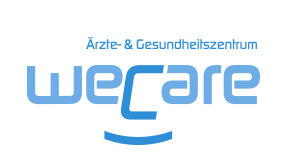Breastfeeding
Breastfeeding
Breast milk and breastfeeding are very important for children. As a certified breastfeeding and lactation consultant IBCLC, I can give you comprehensive advice on this subject (preparation for breastfeeding, increasing the amount of breast milk, help with sore nipples, inflammation of the breast, cessation of breast milk, clogged milk ducts, milk duct thrush, vasospasm,…).
Breastfeeding is more fun when exchanging experiences with like-minded people. Therefore, I recommend visiting of our nursing group “All about your baby” .
FAQs on breastfeeding...
How to get off to a good start?
When your baby is born, it will be placed – as soon as it is possible – naked and unwashed on your bare belly or the chest. If there is no medical emergency, the new family can enjoy an undisturbed and intimate contact, the bonding. The baby can find the nipple itself via the smell and will suck. The colostrum, foremilk, which was formed during the first days of life, protects your baby from infections, mobilises the intestines and can reduce the severity of neonatal jaundice. Even if your baby cannot suck at the breast, it is important that it gets some foremilk which has been pre-massaged out of the breast. A midwife or lactation consultant will help you in this case.
Is it good if my baby wants to be breastfed every 2 hours?
Yes, it is ideal if the baby drinks every 2-3 hours, about 8-12 times a day.
You’ve already come to know your baby and know that it’s showing with signals that it wants to be fed (such as sucking movements and sounds, hand-to-mouth-movements, fast eye movements, gentle cooing or sighing, restlessness). The sucking of your baby at the breast causes more milk to be produced. It is both nice and important that you and your baby spend a lot of time together and have direct skin contact again and again.
It is hot. Does my baby need any extra fluid?
If your baby is fully breastfed it will not need any extra food or fluids during the first 4-6 months.
What am I allowed to eat?
Try to eat healthy according to general recommendations (see also information on nutrition), you have an increased energy requirement of about 500 kcal. There is no clear evidence that certain foods cause colic in babies. Broccoli, cabbage, cauliflower, chocolate, cow’s milk and onions can cause restless behaviour. Usually after 8-12 hours your baby might react with increased screaming which settles again after 24 hours. A diary can help to find out which foods your baby reacts to.
Should I drink a lot?
It is best if you drink according to your thirst and have a glass of water ready when breastfeeding. Increasing the amount you drink does not lead to an increase of your breast milk.
May I have a glass of wine?
It is recommended that you do not drink alcohol while breastfeeding, in any case not more than a glass of wine or sparkling wine once or twice a week. Alcohol changes the smell and the taste of the breast milk. If you consume an alcoholic drink to toast occasionally, it is advisable to take a breastfeeding break of about 2 hours afterwards.
How much coffee may I drink?
About 3 cups of coffee are harmless and are usually well tolerated by the baby.
May I take painkillers or antibiotics?
Doctors often advise to wean when mothers should take medicine. This is usually not necessary. If you have pain or fever, ibuprofen (e.g. Nurofen®) is the drug of choice, as it does not pass into the breast milk.
Among the common antibiotics such as penicillin, cephalosporins and macrolides you may continue to breastfeed.
I am supposed to be operated. What should I consider?
First of all: In case you need anaesthesia, you can still continue to breastfeed without worrying!
It is advisable to make a plan before the operation as to who can support you after the surgery. You may be able to pump out a supply of breast milk.
Breastfeed your baby right before the surgery and as soon as you wake up from anaesthesia. It is not necessary to take a break from breastfeeding. You can take painkillers after the operation.
Where can I get further support?
Midwives and lactation consultants are happy to help you, also nursing groups are highly recommended for the exchange of experiences with other mothers.
Recommended reading: Stillen-ein guter Start für Mutter und Kind, Guoth-Gumberger, Hormann, GU-Verlag
Links:

